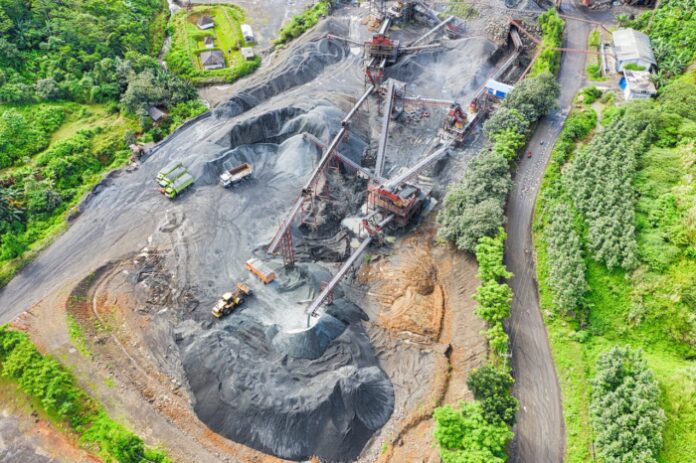Jordan is a country rich in natural resources, including minerals and metals, which makes the mining sector a significant contributor to its economy. However, the mining industry can have negative impacts on the environment and local communities if it is not conducted sustainably.
“Jordan must move towards sustainable mining practices to ensure that the country’s natural resources are utilized responsibly, without harming the environment or communities,” says Samer Mouasher, an entrepreneur and founder of several companies and organizations in the fields of environmental mining, green energy, and technology. Mr. Mouasher’s companies are committed to promoting sustainable and environmentally conscious practices in their respective industries.
Since Jordan boasts the significant achievement of being the world’s sixth-largest producer and second-largest exporter of phosphate and its fourth-largest producer and second-largest exporter of potash, it must consider the importance of implementing green mining principles.
What Are the Benefits of Green Mining?
The process of extracting minerals and metals in a manner that minimizes negative impacts on the environment and local communities can be achieved by using modern technologies and best practices. Green mining means reducing the amount of waste generated, conserving energy and water resources as well as minimizing pollution.
Jordan set out to realize the 2030 Agenda for Sustainable Development and has already taken steps towards sustainable mining. Furthermore, Jordan established a National Sustainable Development Strategy (NSDS) that recognizes the importance of sustainable mining practices. However, more needs to be done to ensure that mining activities in Jordan are conducted sustainably.
“Jordan must consider not only the economic benefits of our mining sector but also the impact it has on its environment and communities. It is our duty to make sure that the impact is beneficial,” states Mouasher.
Good Sustainable Mining Practices
Jordan’s mining industry has experienced a significant increase in revenues in 2022. According to Hamzeh S. Al-Alayani, a board member of a Jordanian public-sector government investment management company and a regular commentator on regional energy and industrial matters, the mining sector’s revenues have increased by 120 percent, equivalent to JD 845.4 million ($1.192 billion) compared to the same period in 2021.
Another important aspect of sustainable mining in Jordan is the management of waste generated during the mining process. Mining activities can generate significant amounts of waste, including tailings and waste rock, which can have negative environmental impact if not managed correctly. Sustainable mining practices can reduce waste generation through the use of innovative technologies that allow for the reuse and recycling of materials, and by adopting best practices for waste management.
Sustainable mining practices involve ensuring that mining activities do not adversely affect the environment or health of the local people. It is also of great importance that mining activities provide economic benefits to the local communities. This can be achieved through partnerships between mining companies and local communities, where the latter is involved in decision-making processes, and benefits from training and employment opportunities provided by mining companies.
Reducing the Environmental Footprint of Mining
In the World Bank report “Minerals for Climate Action: The Mineral Intensity of the Clean Energy Transition” it is observed that clean energy technologies will require more minerals, the carbon footprint of their production — from extraction to end use. To meet the growing demand, the production of minerals is estimated to increase by almost 500% by 2050, according to the World Bank. Additionally, in order to achieve a below-2°C future, over 3 billion tonnes of green minerals and metals for solar photovoltaics, batteries, electric vehicle motors, wind turbines, fuel cells, and nuclear reactors will be required globally.
Traditional mining practices have significant environmental impact, such as air and water pollution, deforestation, soil erosion, and habitat destruction. In order to reduce the environmental footprint of mining, the concept of green mining has emerged. Green mining involves the use of modern technologies, best practices, and innovative solutions to reduce the environmental impact of mining operations while ensuring efficient extraction of minerals. The use of renewable energy sources such as solar or wind power will help reduce greenhouse gas emissions from mining activities while recycling and re-use of materials also help reduce the environmental footprint of mining.
Green mining practices also prioritize the protection of ecosystems and biodiversity. To achieve this, companies use techniques such as precision mining, where the extraction process is optimized to minimize the amount of material removed, and therefore, reducing the impact on the surrounding environment. Similarly, the use of bioremediation techniques, such as using plants or bacteria to remove pollutants from contaminated soil, can help restore ecosystems affected by mining activities.
While traditional mining practices have long been a part of the global economy, increasing demand for sustainable and environmentally responsible practices has led to the emergence of green mining. Green mining practices can help mining companies meet this demand while reducing their environmental impact and improving social and economic benefits.
In conclusion, sustainable mining is crucial for the long-term development of Jordan’s mining industry, and the country’s overall sustainable development. By adopting sustainable mining practices, Jordan can ensure that its natural resources are used responsibly, without harming the environment or local communities, and contribute to a more sustainable future.
Find a Home-Based Business to Start-Up >>> Hundreds of Business Listings.
















































